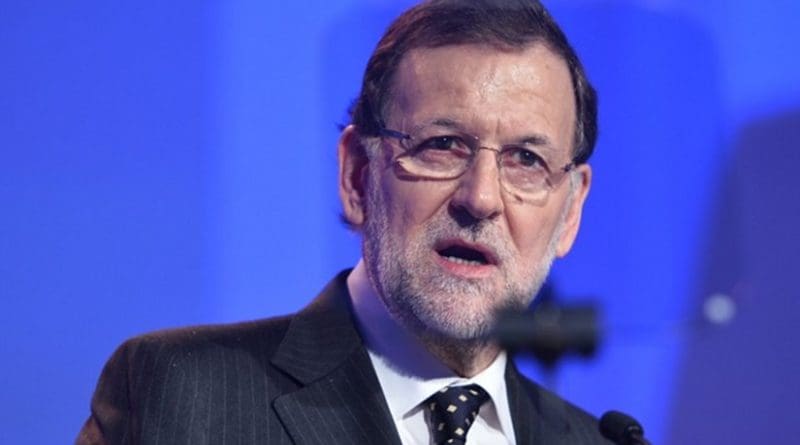Spain’s Rajoy Warns Le Pen Victory Would ‘Destroy Europe’
By EurActiv
By Jorge Valero
Spanish Prime Minister Mariano Rajoy warned on Thursday (26 January) that the victory of populist forces in Europe would be “a disaster”.
His comments came against the backdrop of the growing backing the Spanish government has found in its efforts to balance the public accounts.
The Eurogroup was ready to give its blessing to Spain’s amended budget for 2017 during its meeting on 26 January.
In an interview with radio Onda Cero, the leader of the Partido Popular (PP) expressed his concern about an election win by French extreme-right candidate Marine Le Pen and Germany’s anti-immigration party AfD .
“I don’t even want to think about it, that would be a disaster, it would simply mean the destruction of Europe,” he said.
“Le Pen has announced plans for a referendum. She wants France to leave Europe as if Europe were the source of all misfortunes. I would like it if she visited the rest of the world,” he added.
“I am convinced that things will turn out alright in Germany and I am absolutely convinced there won’t be a problem in France,” Rajoy commented.
According to the polls, Le Pen is expected to make to the second round of France’s Presidential elections in May. German voters’ backing for AfD is more modest, as the party could win around 12-15% of votes, according to some estimates.
Eurogroup’s okay
Rajoy’s comments were made the same day eurozone finance ministers were expected to give their green light to Spain’s draft budgetary plan.
The new draft budget, submitted last December, includes new adjustments to reach a deficit target of 3.1% of GDP this year, as the EU requested last summer.
The Eurogroup’s okay will follow the European Commission positive assessment of the 2017 draft budget. However, the executive warned last week that Madrid would miss its deficit by a narrow margin (3.3% of GDP) given that the government was somewhat more optimistic in regards to growth.
Neither the Commission nor the Eurogroup requested additional measures at this stage.
The EU executive “invited” the Spanish government “to stand ready to take further measures” in case further risks materialised.
But the EU institutions have no intention to pressure Spain at this stage, given that the fourth-largest economy in the eurozone is the only big eurozone partner that will not face the ballot box in 2017.
Optimism
Spain’s Economic Affairs Minister, Luis de Guindos, said on Thursday that the small deficit deviation was due to the “slightly more optimistic” growth forecast foreseen by Madrid (2,5%) compared to the Commission (2,3%)
But given the evolution of the Spanish economy over the last quarter, he was “convinced” that the Commission would adjust its growth forecast, he told reporters on his way into the Eurogroup meeting.
Guindos arrived in Brussels with positive news, as Spain announced the lowest unemployment rate in seven years.
The jobless rate fell to 18.6% in the final quarter of 2016, its lowest level since the last three months of 2009, according to figures released by national statistics institute INE.
Greek problems
Eurozone finance ministers were also expected to discuss the Greek programme.
EU institutions are facing difficulties in closing the second review of the third bailout programme of up to €86 billion.
The IMF and the Commission also disagreed in recent months about the fiscal path for Greece beyond 2018, when the rescue programme concludes.
Greek Finance Minister Euclide Tsakalotos met with his German counterpart, Wolfgang Schauble, and Eurogroup President Jeroen Dijsselbloem before the meeting started.
Germany is Athens’ main creditor and a staunch critic of facilitating debt relief.
Dijsselbloem said that in order to conclude the second review, more talks were needed with the Greek government.
An official told Reuters that there was “a good chance” the eurozone partners could agree to send negotiators back to Athens so that a deal approving completion of the latest bailout reforms could be reached in February.

